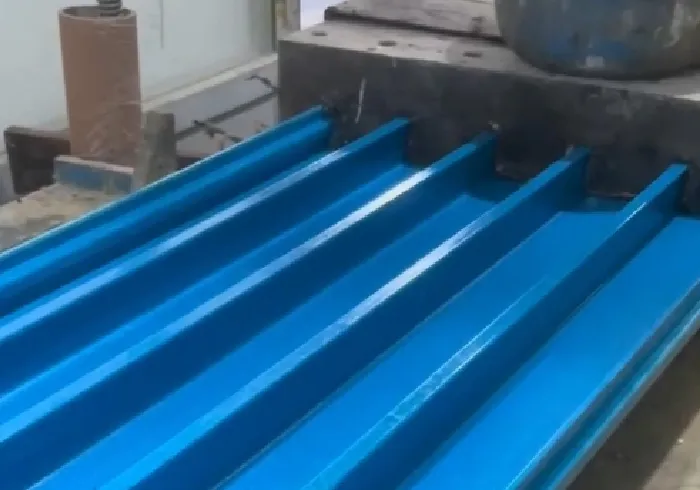loading...
- No. 9, Xingyuan South Street, Dongwaihuan Road, Zaoqiang County, Hengshui, Hebei, China
- admin@zjcomposites.com
- +86 15097380338
- Welcome to visit our website!
frp water storage tank
The Benefits and Applications of FRP Water Storage Tanks
In recent years, the demand for high-performance water storage solutions has surged due to urbanization, industrial growth, and the need for efficient water management. Among the various options available, Fiberglass Reinforced Plastic (FRP) water storage tanks have emerged as a superior choice, offering numerous advantages for both residential and industrial applications. This article explores the benefits, construction methods, and various applications of FRP water storage tanks, highlighting their importance in modern water management.
Understanding FRP Water Storage Tanks
FRP tanks are constructed from a combination of glass fibers and resin, resulting in a lightweight yet incredibly strong material. This composite structure lends itself to various applications, including drinking water storage, wastewater treatment, and agricultural irrigation. The versatility of FRP has made it a preferred choice in many industries, including municipal water systems, chemical processing, and food and beverage production.
Key Benefits of FRP Water Storage Tanks
1. Corrosion Resistance One of the standout features of FRP tanks is their resistance to corrosion. Unlike traditional materials such as steel or concrete, FRP does not rust or degrade when exposed to water or harsh chemicals. This characteristic significantly extends the lifespan of the tank, reducing the need for frequent replacements and maintenance.
2. Lightweight Construction The lightweight nature of FRP makes it easier to transport and install. This is particularly advantageous in remote or challenging locations, where heavy equipment may not be accessible. Additionally, the reduced weight can lead to lower transportation costs and simplified installation procedures.
3. Temperature Insulation FRP tanks offer excellent thermal insulation properties, which help maintain the water temperature within the tank. This is essential for applications where temperature stability is critical, such as in certain industrial processes or in the storage of agricultural products.
4. Customizable Design FRP tanks can be manufactured in various shapes and sizes to meet specific requirements. Whether it’s a large tank for industrial use or a smaller unit for residential purposes, the flexibility in design allows for tailored solutions that can fit within spatial constraints or aesthetic preferences.
frp water storage tank

5. Durability and Strength The composite materials used in FRP tanks provide exceptional strength, enabling them to withstand extremes of pressure and temperature. This durability makes them suitable for a variety of environments, including areas prone to seismic activity or heavy rainfall.
Applications of FRP Water Storage Tanks
The versatility of FRP tanks allows them to be employed in a wide range of applications
- Municipal Water Supply Many municipalities use FRP tanks for potable water storage. Their corrosion resistance and longevity make them ideal for municipal water systems, ensuring clean and safe drinking water is readily available.
- Industrial Use Industries often require large volumes of water for manufacturing processes. FRP tanks can be integrated into systems for cooling water, chemical storage, and wastewater treatment, providing a solution that meets the unique demands of industrial operations.
- Agriculture Farmers frequently utilize FRP tanks for irrigation purposes. The tanks can be strategically placed to store harvested rainwater or to supply water during dry seasons, enhancing water management in agriculture.
- Fire Protection Systems In areas where fire hazards exist, FRP tanks can serve as an essential component of fire suppression systems. Their ability to store large quantities of water securely ensures that firefighters have quick access to necessary resources.
Conclusion
In conclusion, FRP water storage tanks represent a modern solution to the challenges of water management. Their array of benefits—ranging from corrosion resistance and lightweight construction to durability and customization—make them an intelligent choice for various applications. As the world continues to face issues related to water scarcity and infrastructure integrity, the adoption of innovative solutions like FRP tanks will play a crucial role in ensuring sustainable water management practices. Whether utilized in municipal systems, industrial operations, or agricultural settings, FRP tanks provide reliable, efficient, and effective water storage solutions for today and the future.
-
The Rise of FRP Profiles: Strong, Lightweight, and Built to LastNewsJul.14,2025
-
SMC Panel Tanks: A Modern Water Storage Solution for All EnvironmentsNewsJul.14,2025
-
GRP Grating: A Modern Solution for Safe and Durable Access SystemsNewsJul.14,2025
-
Galvanized Steel Water Tanks: Durable, Reliable, and Ready for UseNewsJul.14,2025
-
FRP Mini Mesh Grating: The Safer, Smarter Flooring SolutionNewsJul.14,2025
-
Exploring FRP Vessels: Durable Solutions for Modern Fluid HandlingNewsJul.14,2025
-
GRP Structures: The Future of Lightweight, High-Performance EngineeringNewsJun.20,2025
